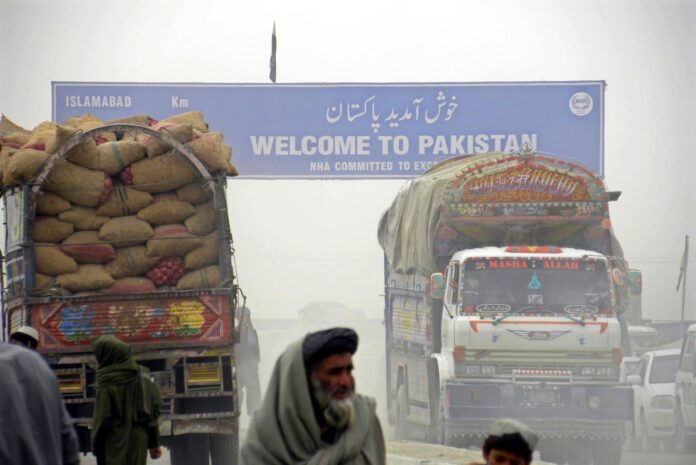In a bid to curb the smuggling of goods into Pakistan through the Afghan Transit Trade (ATT) route, the government is gearing up to impose stringent restrictions on specific items that are adversely impacting the nation’s industry and economy.
As per a report published by BR, the Ministry of Commerce is alarmed by the 67 percent increase in Afghan Transit Trade through Pakistan in the fiscal year 2022-23, reaching $6.71 billion from $4.016 billion in the previous year. This substantial trade deficit, driven by Afghan imports, is challenging to explain given Afghanistan’s limited exports and the sanctions on its interim government.
Commerce Ministry reported that meetings have taken place over the past two weeks, culminating in a joint presentation by the Ministry of Commerce and the Federal Board of Revenue (FBR) to the Prime Minister’s Office, with these findings shared with the Apex Committee of SIFC on September 8, 2023.
To address these issues, the Ministry of Commerce plans to ban specific items under Afghan Transit Trade, including fabrics, tires, black tea, home appliances, toiletries, and cosmetics.
The SIFC Executive Committee has directed officials to develop a mechanism to curb smuggling of identified items, including fabric, machinery, tires, and black tea.
The Secretary of Commerce, Secretary of Finance, and Chairman of the FBR have been tasked with assessing the impact and feasibility of imposing a 10 percent ad valorem processing fee on identified smuggling-prone items. They are also directed to explore the possibility of replacing insurance guarantees with bank guarantees for consignments released after the uploading of T-1 forms in WeBoc for transit trade.
Reviewing the Afghanistan-Pakistan Transit Trade Agreement (APTTA) is also on the agenda to counter smuggling.





The Ministry of Commerce plans to ban specific items under Afghan Transit Trade, including fabrics, tires, black tea, home appliances, toiletries, and cosmetics.